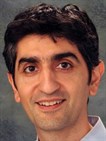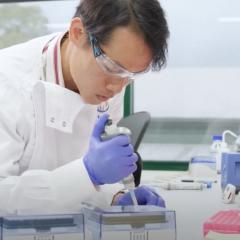Insights from the placenta: Slow dividing vascular stem cells – finding new hope for patients with cardiovascular disease
The placenta, usually discarded after childbirth, can give life a second time around because it contains regenerative stem cells, in encouraging quantities. This offers hope for patients with cardiovascular disease.
In 2014, researchers from The University of Queensland’s Centre for Clinical Research started a study utilising stem cells from placenta, to isolate specialist vascular cells capable of regenerating new blood vessels. When delivered, these cells greatly improved damaged limbs where blood flow is restricted. This situation called “critical limb ischemia” results in intense pain in patients and ultimately ulcers and limb loss by amputation.
In a more recent study, the same team has dug deeper to understand how these stem cells work at the molecular level. Amazingly, they’ve found that to be a stem cell, a given cell needs a complex machinery preventing it from dividing too much in a state called quiescence. Tweaking that machinery allowed us to either keep the stem cells quiescent for long periods or to the contrary, released them from quiescence which resulted in their loss. This allows us to know and modulate how many true stem cell a given preparation contains before it is given to a patient.

“Our discovery of a slow dividing, quiescent vascular stem cell, provided two important pieces of information: firstly its long-term capacity to survive and secondly a lasting ability to expand to large quantities which is critically important when considering the clinical setting” says Dr Jatin Patel, National Heart Foundation Postdoctoral Research Fellow.
Placental tissue contains an abundance of specialist vascular stem cells, but problems with first, identifying them and second, isolating them in sufficient quantities for use in clinical treatment has been a challenge.

Clinical study leader Professor Kiarash Khosrotehrani says “the discovery and ability to isolate specialist vascular stem cells can help reduce limb amputations, offer hope to cardiovascular disease patients and reduce the burden on our health system.”
The outcomes of this study, published in the journal Stem Cells, will most certainly impact the future design of stem cell therapies in treating vascular disease.
Media: Associate Professor Kiarash Khosrotehrani, k.khosrotehrani@uq.edu.au; Jenny Johnston, Marketing Communications Officer, UQ Centre for Clinical Research (UQCCR), 07 3346 6041, 0438 753 471 orj.johnston2@uq.edu.au.



